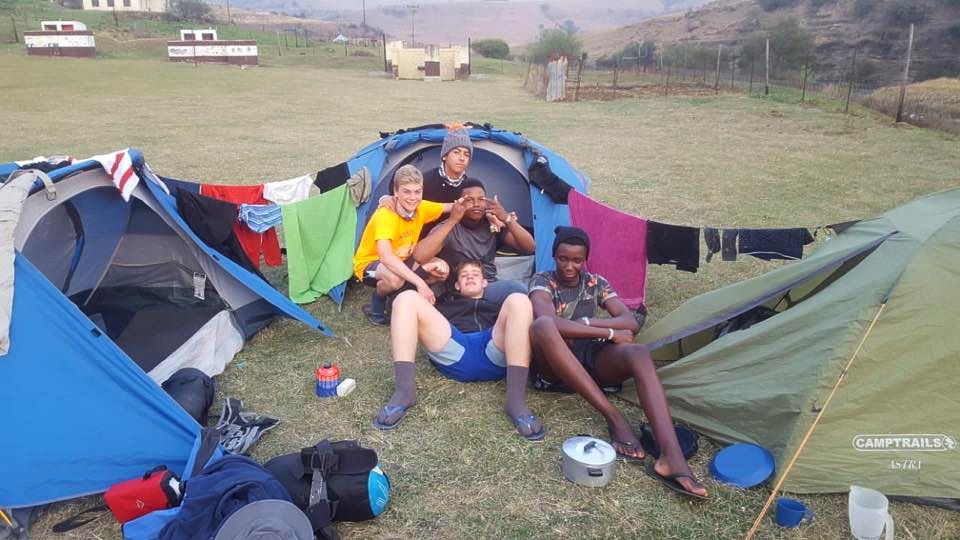Adventurous Journeys
The ultimate leadership and life-skills opportunity
“Time in nature is not leisure time; it's an essential investment in our children's health (and also, by the way, in our own).”
― Richard Louv, Last Child in the Woods: Saving Our Children from Nature-Deficit Disorder
Children are increasingly moving indoors. The average child in our modern, suburban society spends four to seven minutes per day in unstructured, imaginative outdoor play and up to seven hours a day in front of an electronic screen. This is having a profound effect on the physical and mental health of our children. We are fast catching up with countries like the UK and US in the rates of childhood obesity, and paediatric prescriptions of ADHD and anti-depressant medications are spiraling upwards.
Our kids lack resilience, are out of shape, they are tuned out and stressed out and are lacking a major part of their development: connection to the natural world through adventure.
Source: CDC's Centre for Chronic Disease Prevention and Health Promotion. Division of Adolescent and School Health.
What the science says...
We all intuitively know that time in nature is good for us but what does the science say? The following are the result of empirical and peer-reviewed research:
· Increased Use of Ritalin in Children: In 2000, one out of every eight American children was taking Ritalin for treatment of behavioral disorders such as Attention Deficit Hyperactivity Disorder (ADHD). Researchers hypothesized that an increase in television viewing, as well as greater academic pressure at an earlier age, was contributing to increased usage.
· Increased Use of Anti-Depressants in Children: The use of anti-depressants in children grew between 1998 and 2002 by 9.2% per year.
· School Performance: Offering environmental education programs in schools improves standardized test scores.
· Attention-Deficit/Hyperactivity Disorder: Researchers at University of Illinois found that exposure to natural settings in the course of common after-school and weekend activities was "widely effective" in reducing attention deficit symptoms in children.
· Critical Thinking: An outdoor learning programme offered outside of schools resulted in significant increase in critical thinking performance tests.
Note: Study references available on request.
What a Journey is About
“When our children leave school, they are going to have to face and overcome far more complex challenges than we ever did, as society changes at an unprecedented rate. Our children will need strength of character, self-knowledge, self-esteem, excellent interpersonal skills, confidence and passion for the environment, in order to deal with problems such as the effects of the explosion of technology on one hand and diminishing adult mentorship on the other.” (Paul Fleischack – Deputy Rector, Michaelhouse).
The benefits for an expedition of this kind are well-argued and include but are not limited to:
- The development of planning skills
- Increased resilience
- Growth in interpersonal and leadership skills
- Growth of practical skills and resourcefulness
- Appreciation of South Africa’s natural beauty and landscape
- Exposure to others’ lifestyles and challenges
- Marketing potential for the school.
We recommend a multi-discipline adventure for at least 7 days. Larger Grade groups will be divided into smaller groups or “Fires” and will always be accompanied by an Entabeni Expedition Leader trained and qualified in all of the appropriate disciplines of movement; be they mountain walking, mountain biking or paddling. Days will be broken up into challenging and achievable distances for each discipline of walking, mountain biking or paddling, and will follow tar roads where necessary and appropriate, district roads, farm tracks, forestry roads, and overland. Any land access will be negotiated by Entabeni. Accommodation may be a combination of wild camping (no facilities), camping on farms, formal camp sites, farm houses, tourist accommodation, and staying with communities. Journeys can be run anywhere in South Africa. Pick a spot on the map!
Enquire
Please click the link below to enquire about a journey for your school or youth organisation
